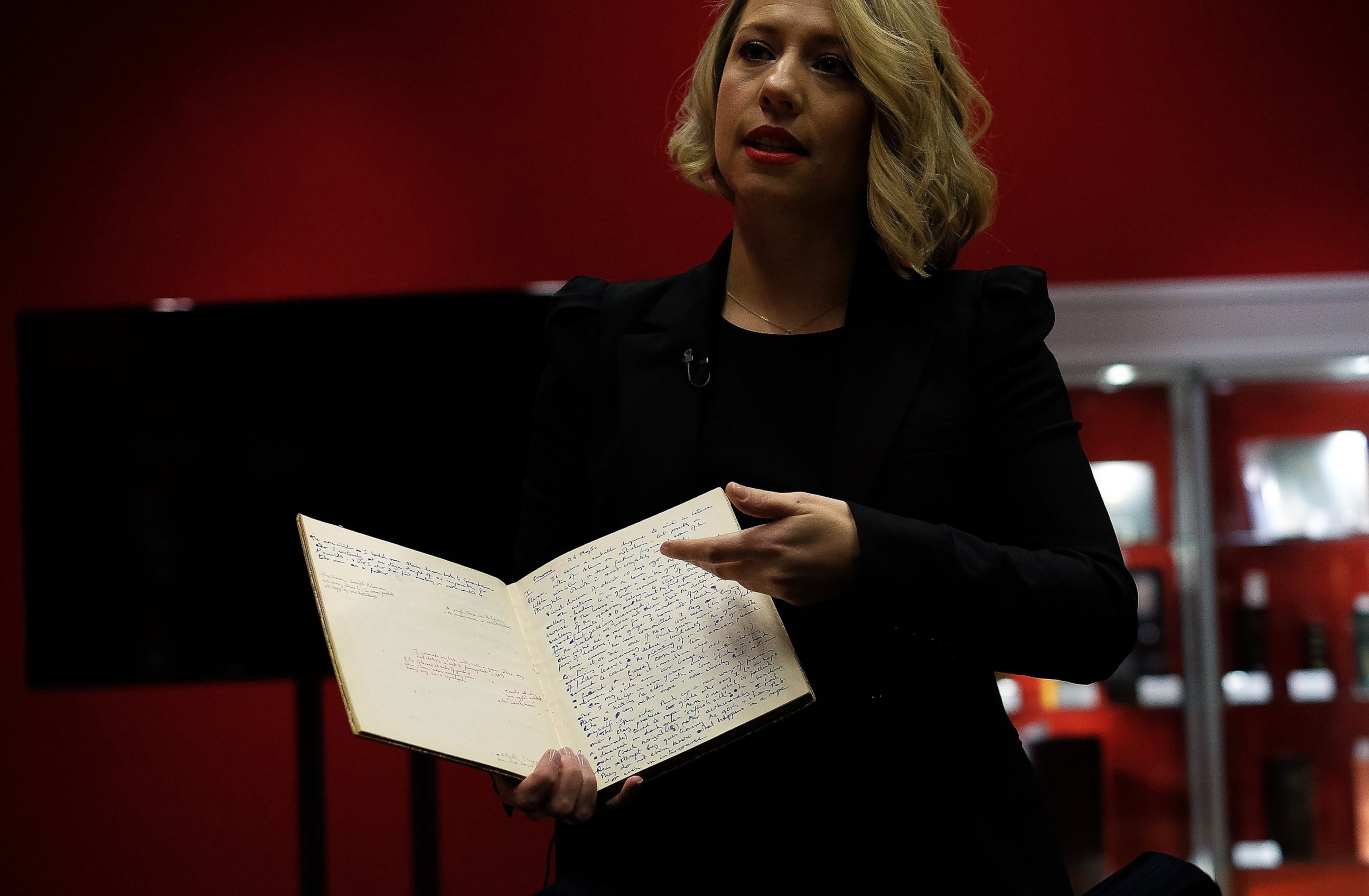Inside Alan Turing's World War II Era Notebook
Notebook belonging to "The Imitation Game" code breaker sells for $1 million.
— -- A notebook belonging to Alan Turing, the British code breaker who helped the allies win World War II, was sold at auction in New York City for $1 million.
The 56-page notebook is one of the few hand-written manuscripts left behind by Turing, who led a successful effort to crack the Germans' Enigma code by creating a machine that could decrypt the secret messages.
Inside the notebook are Turing's handwritten notes taken around 1942 from when he worked at Bletchley Park on a secret project to help the war effort.
Turing's notes capture his thought process as he worked behind the scenes during World War II.
"The Leibniz notation I find extremely difficult to understand in spite of it having been the one I understood the best once! It certainly implies that some relation between x and y has been laid down eg, y=x2+3x..." he wrote on one page, according to Bonham, the auction house that sold the notebook.
Heralded as the father of modern computer, Turing's machine is credited with saving countless lives and contributing to Allied victories that helped put an end to the war.

Despite his tremendous contributions to computer science and his role in the war effort, Turing was later arrested and charged under a law that criminalized homosexuality in the United Kingdom.
As part of a deal to avoid prison time, Turning agreed to be injected with female sex hormones. He died on June 7, 1954 -- believed to be a suicide by eating an apple poisoned with cyanide.
He was posthumously pardoned in 2013 by Queen Elizabeth II.




